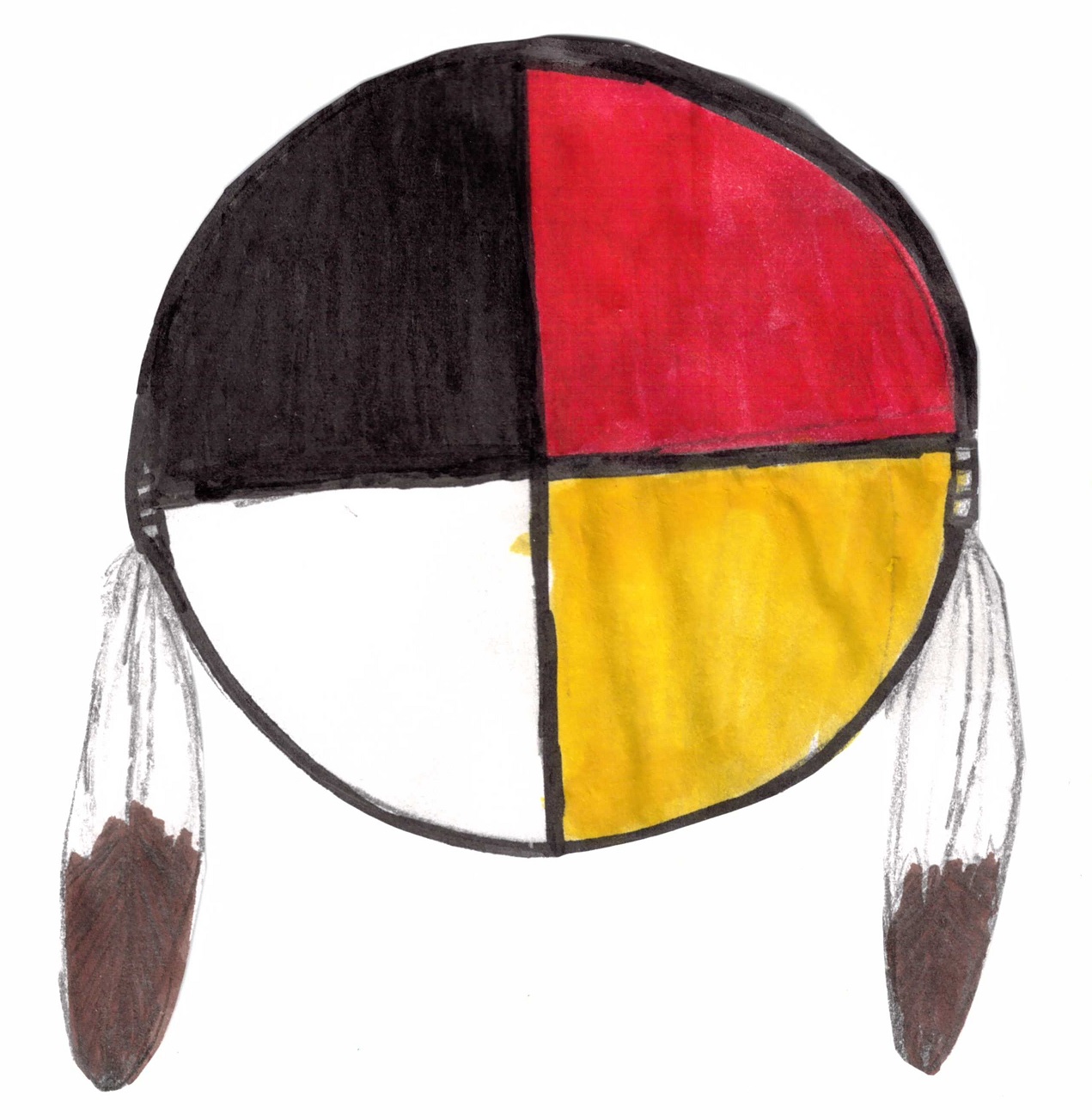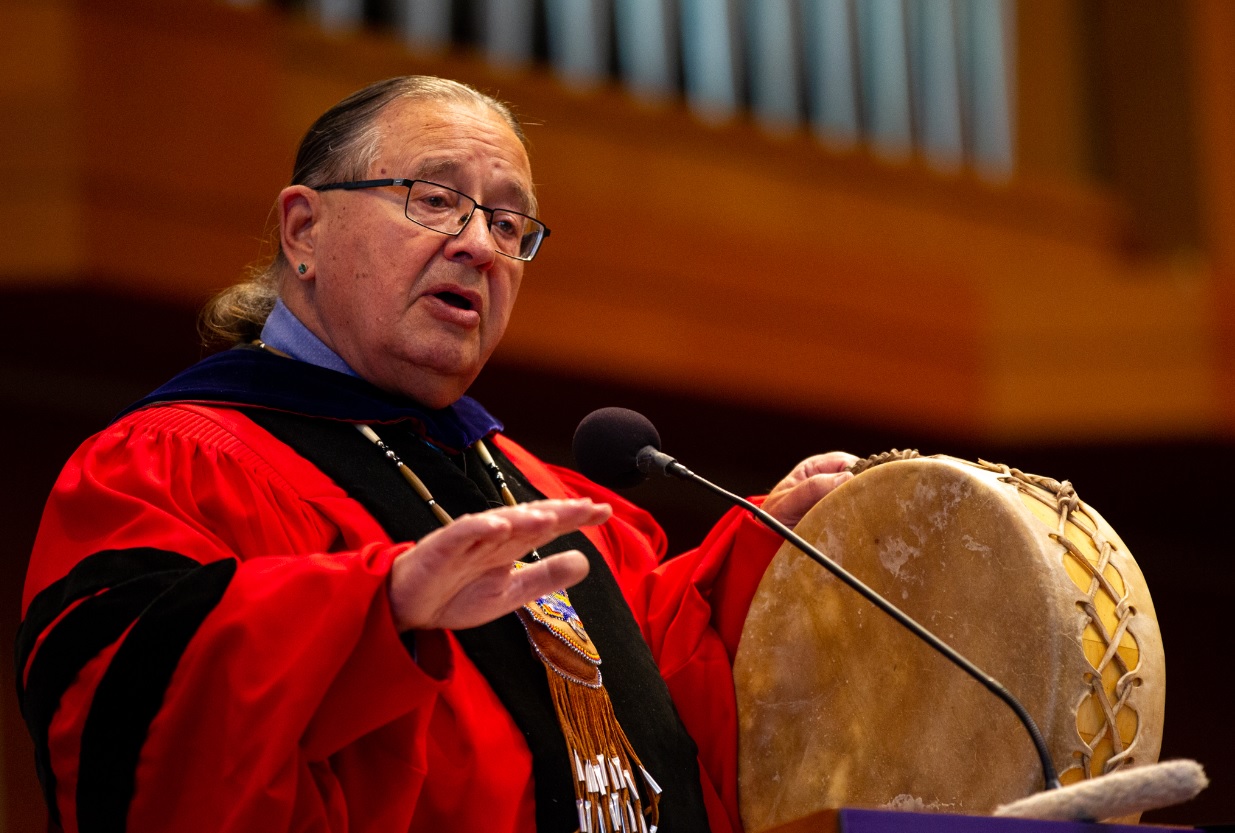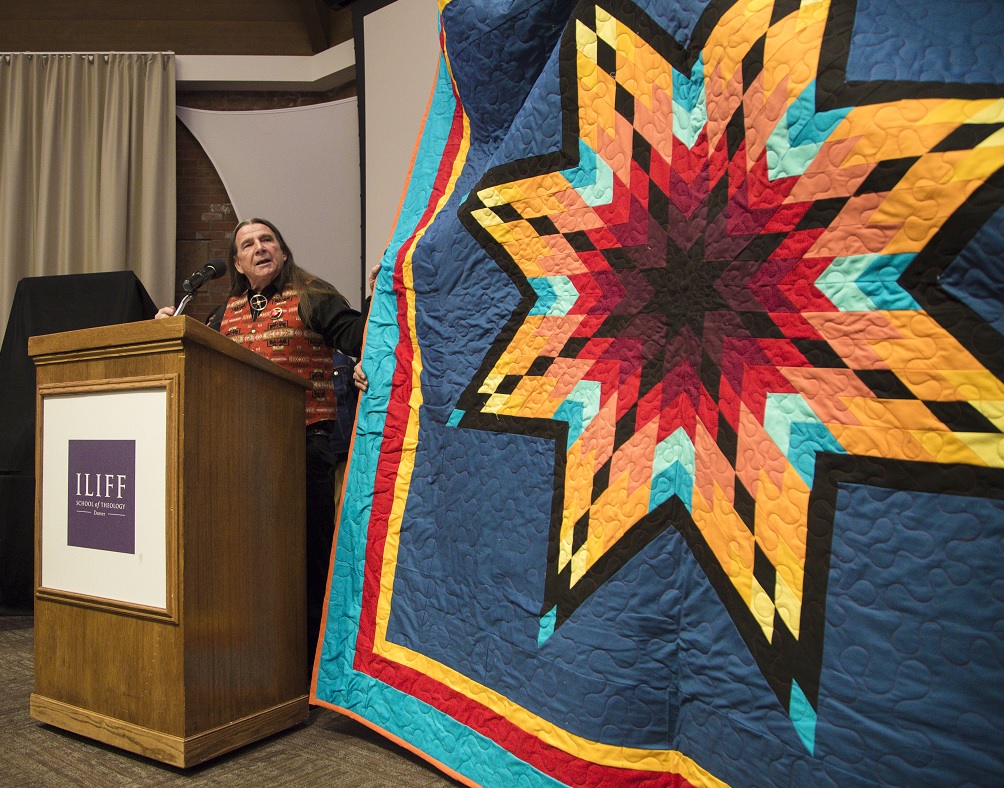ERASING
AMERICAN
INDIAN
GENOCIDE:
Romanticizing the American Past
October 17, 2019
8:00 a.m. – 6:00 p.m.
Shattuck Hall Iliff School of Theology


Key Highlights at the Conference:
- View the latest: Conference Agenda.
- Professor Emeritus Tink Tinker (wazhazhe, Osage Nation) will be giving the opening address – Erasing Genocide: How a Red Man’s Tanned Hide Exposes the American Myth.
- Professor Barbara Alice Mann will be speaking on – Thou Shalt Save Alive Nothing That Breatheth
- Steven Newcomb – Genocide, Domination, and Dehumanization
- Dr. Rangimārie Mahuika and Dr. Nēpia Mahuika are both presenting on – “This is not us?” Decolonizing the White Supremacist State in Aotearoa New Zealand.
- Dr. Debra Harry – Confronting the Myths and Realities of Genocide
- Reception after the conference – 6:00 p.m. to 6:30 p.m.
- Bios of speakers at the conference (see below):
Dr. Rangimārie Mahuika is a Fulbright Visiting scholar of Ngāti Rangiwewehi, Ngāti Whakaue and Te Rarawa descent. She has an interdisciplinary background, having trained as both a Lawyer and an elementary school teacher in Aotearoa/New Zealand. Rangimārie has completed a Masters in Education and taught Kaupapa Māori Research Theory and Methods at Te Kura Toi, Faculty of Education at the University of Waikato. She has also completed a Doctorate, focusing on indigenous governance within the tribal nation of Ngāti Rangiwewehi at Te Piringa Faculty of Law at the University of Waikato. Rangimārie has been fortunate to be involved in a wide range of research projects within her own tribal community and is passionate about the potential Indigenous ways of knowing, being and governing hold for transforming and healing our world.
Professor Glenn Morris (Shawnee) is an Associate Professor of Political Science and a President’s Teaching Scholar at the University of Colorado at Denver. He is also the founder and director of the Fourth World Center for the Study of Indigenous Law and Politics at CU-Denver. Morris’ scholarly areas of specialization and emphasis involve the landscapes where indigenous peoples and invader states collide. At times, that has required an interrogation of the colonial underpinnings of law and politics both in specific invader state contexts, such as the United States, as well as an analysis of the techniques of invader-state collectives, such as the United Nations, to capture and to tame indigenous peoples’ aspirations for self-determination. Morris has worked in the international arena for over thirty years, assisting in the drafting of the UN Declaration on the Rights of Indigenous Peoples, and participating in the UN Human Rights Commission (Council), the UN Working Group on Indigenous Populations, and the UN Permanent Forum on Indigenous Issues. He has served as an advisor and advocate for indigenous peoples and nations ranging from the Oglala Sioux Tribe and Standing Rock Sioux Tribe to the Naga Nation in northeast India, the Miskito Nation in Nicaragua and the Western Shoshone National Council. He has had the pleasure and honor of collaborating with indigenous activists and academics from every continent, and in every conceivable circumstance from university conferences to active battlefields. Locally, he serves on the Leadership Council of the American Indian Movement of Colorado and Four Winds American Indian Council.
Steven Newcomb (Shawnee) is co-founder and co-director of the Indigenous Law Institute and has been studying and writing about U.S. federal Indian law and policy since the early 1980s. His particular focus is the domination and dehumanization of Indigenous nations and peoples. Newcomb is the author of Pagans in the Promised Land: Decoding the Doctrine of Christian Discovery and he is co-producer of a documentary movie The Doctrine of Discovery: Unmasking the Domination Code, directed by Sheldon Wolfchild (Dakota) based on this book. From 2002 until 2016, Newcomb was a regular columnist for Indian Country Media Network (previously Indian Country Today). He uses his background in Rhetoric and Communication to advocate in support of Original Nations. In 1992, Birgil Kills Straight (Oglala Lakota) and Newcomb founded the Indigenous Law Institute. From then until today Newcomb has focused on Indigenous Peoples’ issues in the international arena and at the United Nations working with numerous Native Nations and Peoples. On May 4, 2016, as part of an Indigenous peoples’ delegation he met Pope Francis at St. Peter’s Square, and spent two hours meeting with Archbishop Tomasi at the Pontifical Council for Justice and Peace to advocate for the revocation of 15th century papal bulls of domination.
Tink Tinker. Ph.D., is citizen of the Osage Nation (wazhazhe), is the Clifford Baldridge Emeritus Professor of American Indian Cultures and Religious Traditions at Iliff School of Theology. During his 33 years at Iliff, Dr. Tinker brought a distinctly Indian perspective to a predominantly White, euro-Christian school and continues to do so in lectures widely across the continent. As an Indian academic Tinker is committed to a scholarly endeavor that takes seriously both the liberation of Indian peoples from their historic oppression as colonized communities and the liberation of White Americans, the historic colonizers, and oppressors of Indian peoples, whose own history has been largely suppressed. For nearly three decades he volunteered both administratively and as a traditional spiritual leader at Four Winds American Indian Council in Denver and worked closely with the American Indian Movement of Colorado. His publications include: American Indian Liberation: A Theology of Sovereignty (Orbis, 2008); Spirit and Resistance: American Indian Liberation and Political Theology (Fortress, 2004); Missionary Conquest: The Gospel and Native American Genocide (Fortress Press, 1993); and co-editor of Native Voices: American Indian Sovereignty and Identity (University of Kansas, 2003). He has published some seven dozen journal articles and chapters for edited volumes.
Dr. Nēpia Mahuika is of Ngāti Porou descent. He is chair of the M?ori historians’ collective of Aotearoa, and Convenor of History at the University of Waikato. He is a Fulbright scholar and President of the National Oral History Association of New Zealand. His most recent book, Rethinking Oral History and Tradition (OUP) challenges the Western-dominated field of oral history, and he has just been awarded the inaugural Judith Binney Fellowship 2019 to write A History of Makutu (“witchcraft”) in Aotearoa.
Barbara Alice Mann, Ph.D., is Professor of Humanities in the Jesup Scott Honors College of the University of Toledo, in Toledo, Ohio, USA. She has authored fourteen books, the latest of which President by Massacre: Indian-Killing for Political Gain (ABC-CLIO/Prager, 2019). She also recently published Spirits of Blood, Spirits of Breath: The Twinned Cosmos of Indigenous America (Oxford, 2016). Other works include The Tainted Gift (Praeger, 2009), on the deliberate spread of disease to Natives by settlers as a land-clearing tactic. Other books include Daughters of Mother Earth (2006), George Washington’s War on Native America (Praeger, 2005). Her internationally famous Iroquoian Women: The Gantowisas (2001, 2004, 2006) on the Iroquoian matriarchy is in perennial demand. Following a Rockefeller Bellagio working fellowship to kick it off, Dr. Mann is currently writing a book with international scholars Philip Dwyer, Nigel Penn, and Lyndall Ryan examining the interface of the empire with historical massacres of Indigenous peoples 1780–1820, in the U.S., South Africa, Europe, and Australia. She previously published in the European Journal of Genocide with these scholars on this subject. In addition, Dr. Mann is a scholar of James Fenimore Cooper, and has recently published book, The Cooper Connection (AMS, 2014) and a number of articles on the little-known connection between Cooper and Jane Austen. A Bear Clan, Ohio Seneca, community recognition, she lives in her homeland and works for the rights of the people indigenous to Ohio, living in Ohio.
Dr. Debra Harry is a Kooyoee Tukadu woman from Kooyooe Pa’a (Pyramid Lake), Nevada. Dr. Harry serves as a Lecturer III for the Gender, Race, and Identity Program at the University of Nevada, Reno. Her research analyzes the linkages between biotechnology, intellectual property, and globalization in relation to Indigenous Peoples’ rights. She has authored numerous articles including an article entitled “Indigenous Peoples and Gene Disputes,” Chicago-Kent Law Review (2009). She also contributed a chapter entitled, “Acts of Self-Determination and Self-Defense: Indigenous Peoples Responses to Biocolonialism,” as a contribution to a book entitled Rights and Liberties in the Biotech Age, (edited by Sheldon Krimsky and Peter Shorett, Roman and Littlefield, 2005), which is an original volume of essays by leading scientists, policy experts and public interest advocates on the impact of genetic technologies on individual and collective rights. She has co-authored with Le`a Malia Kanehe, JD, LL.M, a chapter entitled “The BS in Access and Benefit Sharing (ABS): Critical Questions for Indigenous Peoples” (in The Catch: Perspectives in Benefit Sharing, Beth Burrows, ed., published by The Edmonds Institute 2005) and an article entitled “The Right of Indigenous Peoples to Permanent Sovereignty Over Genetic Resources and Associated Indigenous Knowledge” in The Journal of Indigenous Policy, published by Jumbunna Indigenous House of Learning, University of Technology, Sydney, Australia. Both pieces of work critique the assertion of intellectual property rights over Indigenous knowledge and genetic material. Internationally, Debra has advocated for the rights of Indigenous peoples at the UN Permanent Forum on Indigenous Issues, the World Intellectual Property Organization, and the Convention on Biological Diversity. She is the Producer of the documentary film “The Leech and the Earthworm (2003),” an IPCB/Yeast Directions production, which examines the globalized hunt for genes within Indigenous territories and features the voices of Indigenous activists from around the world. In 1994, Debra received a three-year Kellogg Foundation leadership fellowship and studied the field of human genetic research and its implications for Indigenous peoples. Debra earned her Doctor of Philosophy degree in the Faculty of Education at the University of Auckland under the supervision of renowned Maori scholar, Dr. Linda Tuhiwai Smith. Dr. Harry’s dissertation titled, “Indigenous Wisdom in the Biotech Age: The Development of New Knowledge in the Context of Biocolonialism” was recognized on the Dean’s list for academic excellence.
Learn more about the Tinker Visiting Professorship and Student Mentoring.
Support the Tink Tinker Program Endowment Fund.
Read more about Redskin, Tanned Hide conference on March 29, 2019.


